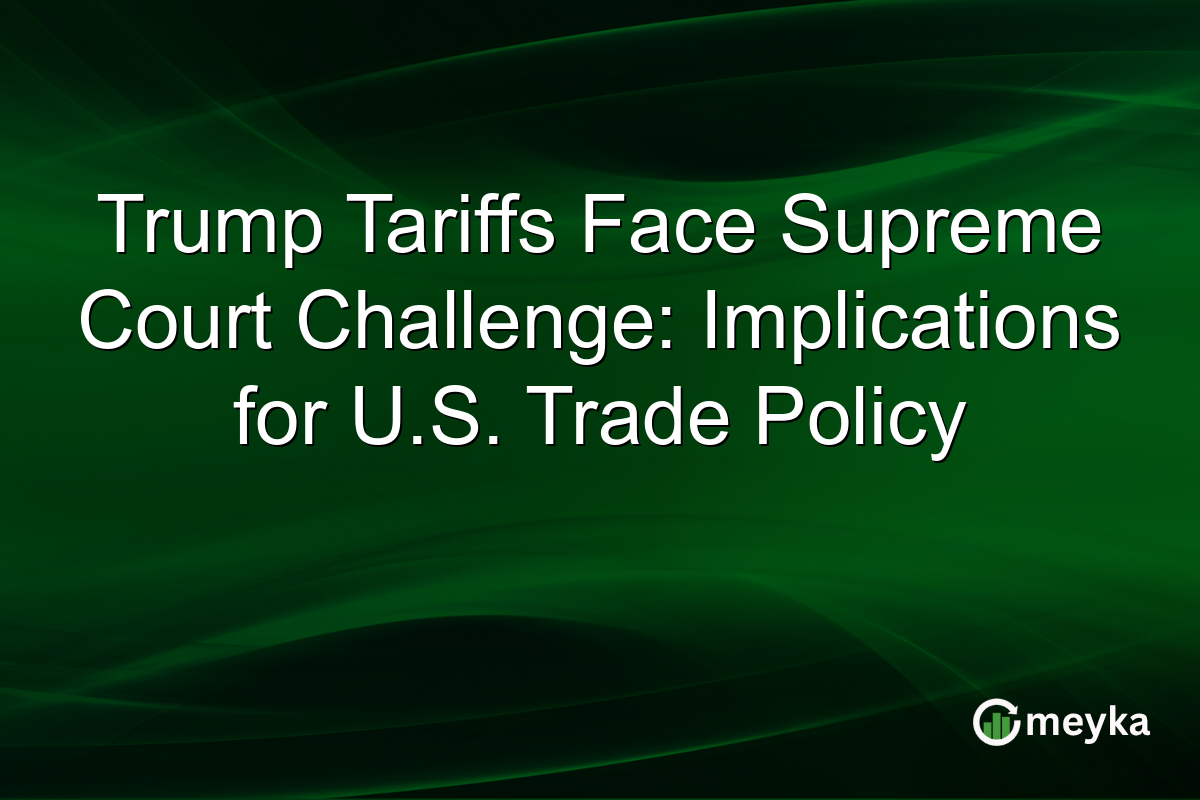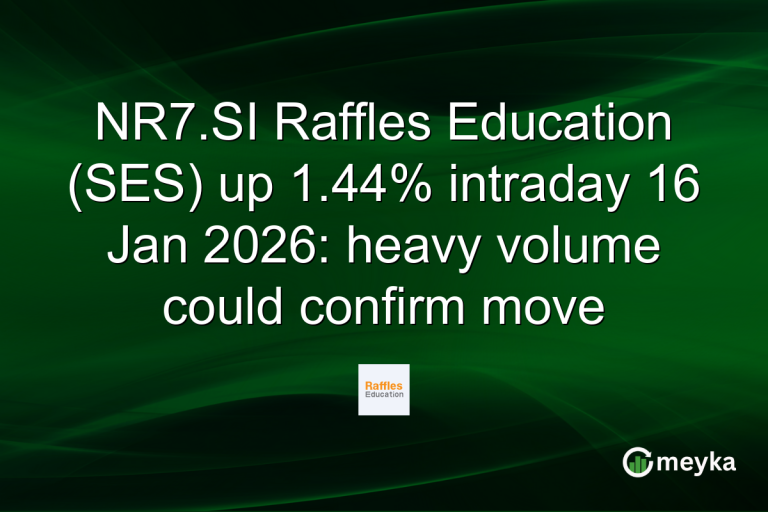Trump Tariffs Face Supreme Court Challenge: Implications for U.S. Trade Policy
The U.S. Supreme Court is poised to examine the legality of tariffs imposed by former President Trump. These tariffs, which have been central to reshaping U.S. trade policy, currently affect nearly 50% of U.S. imports, subjecting them to substantial duties. This challenge not only questions the tariffs’ legality but also signals possible shifts in economic policies that have been deeply divisive since their inception in 2018.
Continue Reading on Meyka
This article is available in full on our main platform. Get access to complete analysis, stock insights, and more.
Read Full Article →





